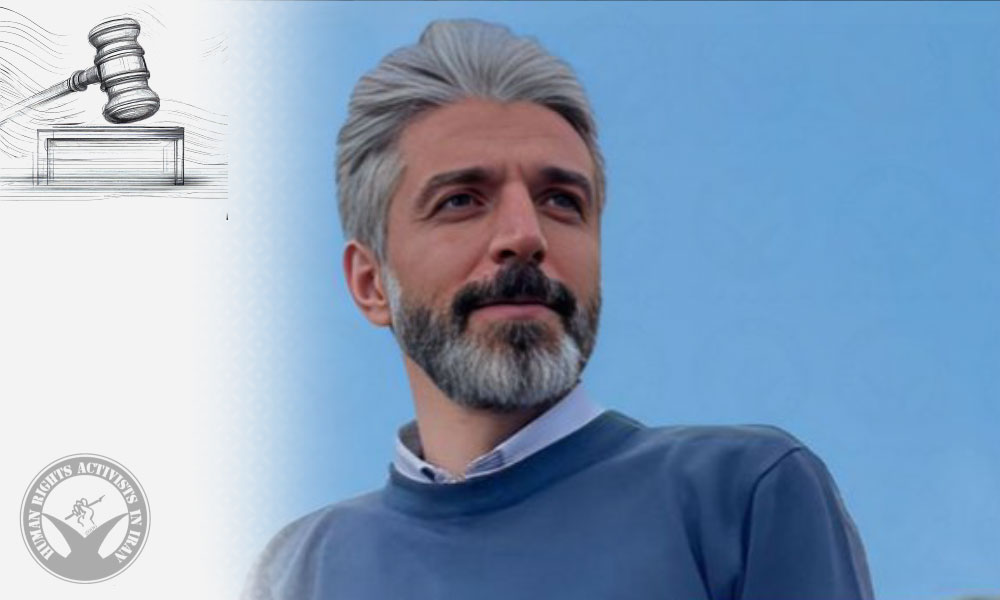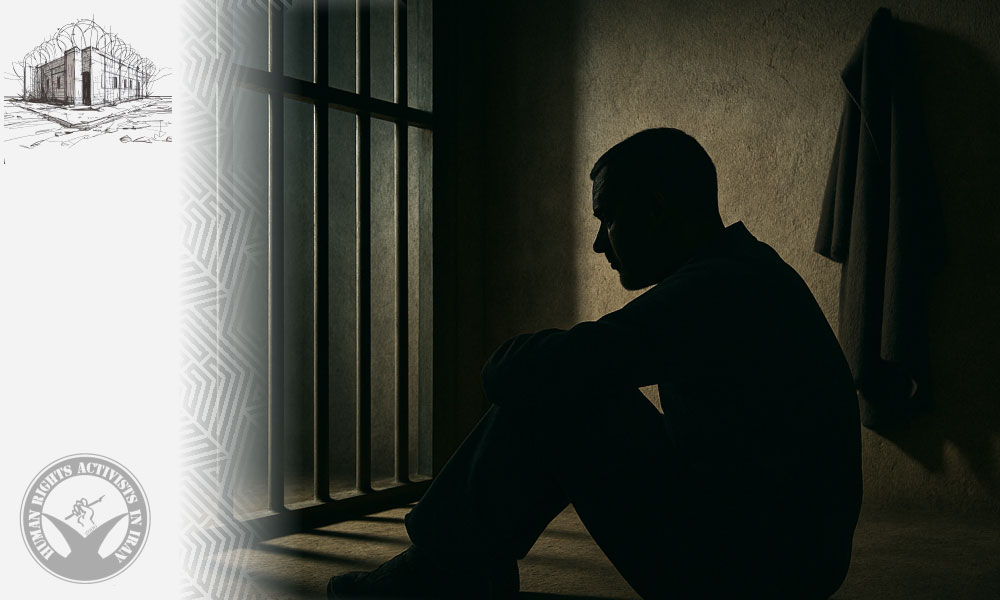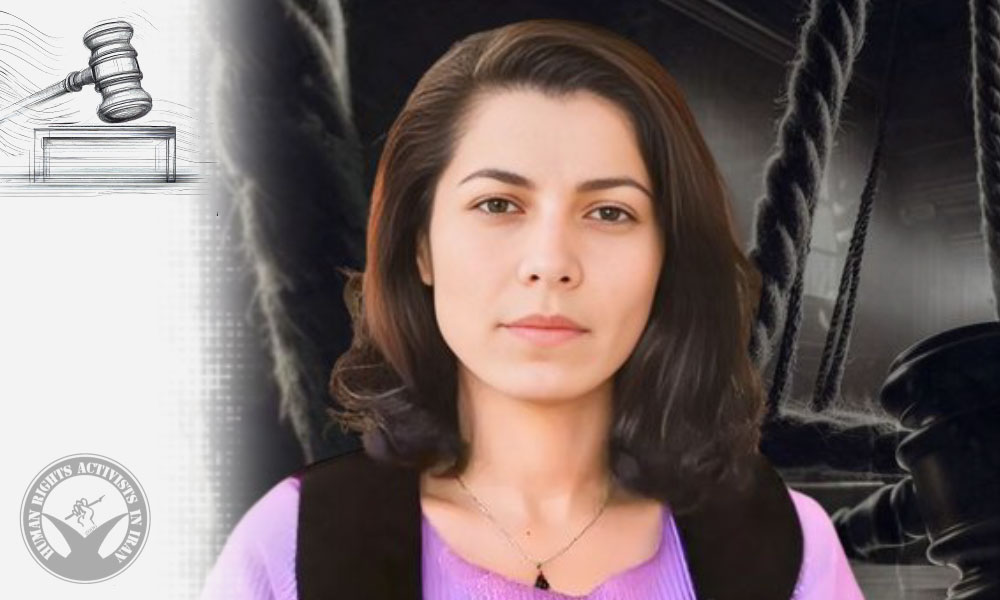Human Rights Activists News Agency (HRANA) – From Karaj’s Rajai Shahr Prison, civil rights activist Arash Sadeghi has written an open letter in response to the assassination of Eqbal Moradi, an Iraqi Kurdistan political activist and the father of political prisoner Zanyar Moradi. In his letter, Sadeghi traces the domestic and foreign assassination campaigns that Iran has been orchestrating since February 1979.
As previously reported by HRANA, the dead body of Eqbal Moradi was found near the Iran-Iraq border in Penjwen, Iraqi Kurdistan. The three bullet wounds on his body marked the last of many attempts on his life.
The full text of Sadeghi’s letter, translated into English by HRANA, is below:
“The campaign to eliminate critics inside and outside the country started in the month of February 1979. It claimed the lives of hundreds of people associated with the previous regime, in addition to Sunnis, Baha’is, dissidents, and members of revolutionary political groups that challenged the new regime’s leadership. It continued during the vast oppression of the 1980’s, and with the mass murder of political prisoners in the Summer of 1988. After the [Iran/Iraq] war ended, it continued with a string of assassinations (known as ‘Chain Murders’) targeting the regime’s detractors and opponents.
Many names can be found on the blacklist: Mohammad Mokhtari, Dariush Forouhar, Parvaneh Eskandari, Mohammad Jafar Pooyandeh, Ali Akbar Sirjani, Pirooz Davani, Hamid and Karoon Hajizadeh, Masoumeh Mossadegh, Zohreh Izadi, and dozens of other dissidents.
But assassinations didn’t reserve themselves for critics and dissidents within Iran. In the past four decades, they followed dozens of opposition figures to European countries.
Ashraf Pahlavi’s son Shahriar Shafiq was the first to go down, killed in Paris in December of 1979. He had been convicted in absentia of “corruption on earth” [a capital crime in Iran] by Sadeq Khalkhali [a notorious judge of the early revolutionary period].
Abdul Rahman Ghassemlou and Abdollah Ghaderi were assassinated in Vienna, Austria during a negotiation with diplomats of the Islamic Republic.
Gholam Keshavarz was killed in Cyprus; Sedigh Kamangar in Ranya, Iraq; and Kazem Rajavi in Switzerland.
Efat Ghazi [spouse of a prominent Kurdish activist and daughter of the President of Iran’s ephemeral Republic of Mahabad] was assassinated in Vasteras, Sweden.
Abdolrahman Boroumand and Shapour Bakhtiar were killed in France.
Fereydoun Farrokhzad was assassinated in Bonn, Germany.
Mohammad Sadegh Sharafkandi, Fattah Abdoli, Homayoun Ardalan, and Noori Dehkordi were assassinated in a restaurant called Mykonos in Berlin. Then there was the bombing of the Jewish community center in Argentina…
Based on the statements of German prosecutors, the foreign-soil murders — right up to the Mykonos killings — were led by the [Iranian] regime’s top political figures. And it was only after trial, and the diplomatic crisis with European countries, that the assassination campaign came to a brief pause.
The chain murders came right behind the 1988 [mass] executions. It was only in the Khatami era, with its relatively open media atmosphere, that the public was sensitized to these murders. Ultimately it was declared that the assassinations were the work of high-ranking security officials, chiefly Saeed Emami. From the autumn of 1998, the murders carried on into the early 2000’s.
The overseas assassination campaign is back up and running; once again the alarm bell is sounding, and the campaign is accelerating forward.
This time around, they targeted Eqbal Moradi. We heard the shocking and bitter news of Eqbal’s death – he is the father of Zanyar Moradi, a political prisoner sentenced to death. [Eqbal] Moradi was an active human rights defender in the city of Penjwen. He collaborated with several human rights organizations, including the international “No To Executions” campaign, and raised funds for political prisoners and their families.
Rare is the human rights activist who hasn’t heard of Eqbal Moradi. I got to know him years ago, and I saw what he did for his dear son, his nephew (Loghman Moradi), and for all political prisoners. When Zanyar was 19 he was taken hostage with his cousin Loghman, simply because the Iranian security apparatus held a grudge against his father.
Zanyar and Loqman were sentenced to die without a fair trial. It’s now been ten years since they’ve been in prison. A flagrant injustice in the trial of Zanyar (a man I consider to be a symbol of resistance and honor): when witnesses were ready to attest to both [him and his cousin’s] innocence, the judge — who is but a rubber-stamp for the security apparatus — refused to accept their testimonies, without giving any legal reasons.
A flagrant injustice: they are hostages to a sinister plot of the security apparatus. Now the father is gone, and his death sounds the alarm of a renewed assassination campaign through Iraqi Kurdistan.
Make no mistake, the renewal of the assignation campaign in Iraqi Kurdistan would be rooted in the regime’s grudge against the opposition; they see the elimination of critics as legitimate, an expedient protection of the regime and of religious law. In the past year, four more Kurdish activists have been assassinated in Iraqi Kurdistan, in addition to Ahmad Mawlana Abu Nahez — known as Ahmad Neysi — an Ahwazi activist who was assassinated in the Netherlands.
Unfortunately, ever since the establishment of the Kurdish Regional Government (KRG), it has lacked a strong and independent government and suffered from partisan divisions. This, paired with the political-military presences in neighboring countries — especially the Islamic Republic, whose Hamzeh Base in Urmia [close to the border with Iraq] answers to the Quds Force, an operating arm of the assassination campaign abroad — has made Iraqi Kurdistan an easy target.
The silence of some countries in response to these assassination cases, or other countries’ official or unofficial endorsement of them, will empower Iran, with all of its human rights violations in-country, to eliminate dissidents abroad with greater ease.
This places a heavy burden on the officials of European countries.
In recent years, they’ve sent thousands of their own citizens to countries such as Iraq, Syria, and Afghanistan to show their commitment to fighting state-sponsored terrorism and human rights violations.
If Western officials are serious about this commitment, they cannot rightly plead economic and trade interests as an excuse to turn a blind eye to operatives of this overseas assassination campaign, the very same people who eliminate dissidents within Iran’s borders. Any kind of silence or cooperation with the Islamic Republic enables domestic oppression and threatens the opposition abroad.
Arash Sadeghi
Wednesday, August 1, 2018
Gohardasht [Rajai Shahr] Prison, Karaj







